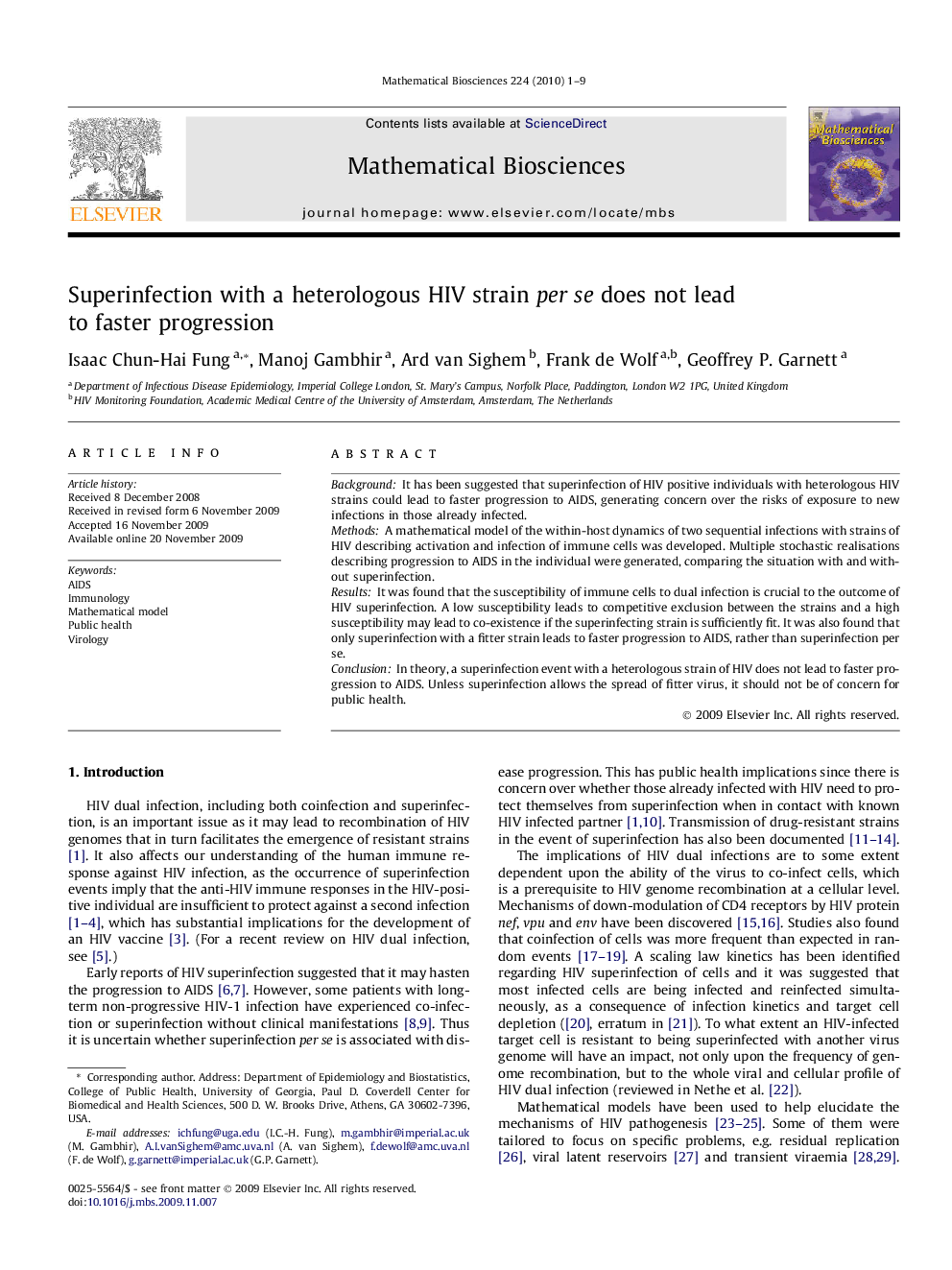| کد مقاله | کد نشریه | سال انتشار | مقاله انگلیسی | نسخه تمام متن |
|---|---|---|---|---|
| 4500629 | 1320010 | 2010 | 9 صفحه PDF | دانلود رایگان |

BackgroundIt has been suggested that superinfection of HIV positive individuals with heterologous HIV strains could lead to faster progression to AIDS, generating concern over the risks of exposure to new infections in those already infected.MethodsA mathematical model of the within-host dynamics of two sequential infections with strains of HIV describing activation and infection of immune cells was developed. Multiple stochastic realisations describing progression to AIDS in the individual were generated, comparing the situation with and without superinfection.ResultsIt was found that the susceptibility of immune cells to dual infection is crucial to the outcome of HIV superinfection. A low susceptibility leads to competitive exclusion between the strains and a high susceptibility may lead to co-existence if the superinfecting strain is sufficiently fit. It was also found that only superinfection with a fitter strain leads to faster progression to AIDS, rather than superinfection per se.ConclusionIn theory, a superinfection event with a heterologous strain of HIV does not lead to faster progression to AIDS. Unless superinfection allows the spread of fitter virus, it should not be of concern for public health.
Journal: Mathematical Biosciences - Volume 224, Issue 1, March 2010, Pages 1–9